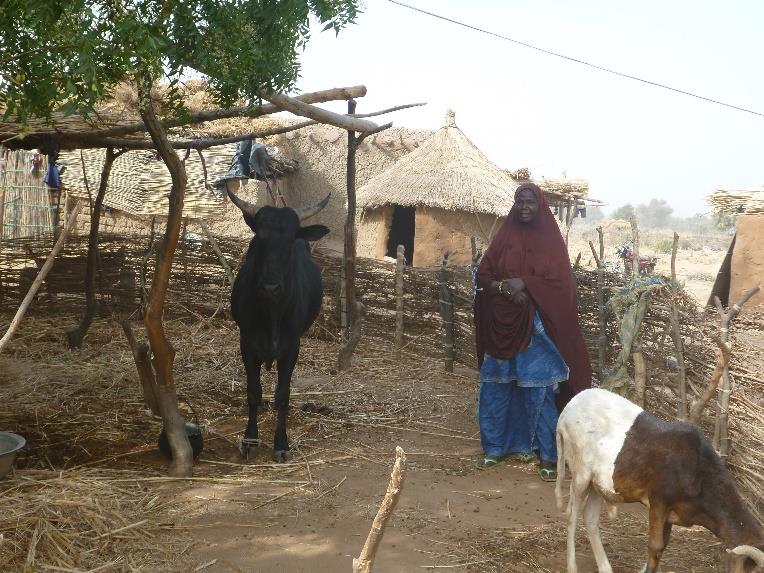
I Learn Best When I Try It Myself
World Renew explains that it takes hearing something several times before people will apply what they have learned, particularly for smallholder farmers who risk hunger if things do not go as planned.
When Ounteni and his wife, Hamsatou, finally put into practice what they’d heard about intercropping legumes like cowpeas with grains and feeding livestock rather than letting animals roam, they were astounded at the difference it made! Imagine their relief when they found that, despite the drought this year, their millet harvest was better than that of other people in their community who had not intercropped. The couple’s diet improved by combining cowpeas with the grain for a complete protein, and they had plenty of plant residue to store on their roof to provide fodder for the animals.
People generally let their animals roam around looking for food, but walking for kilometers every day to try to find something to eat often wore the animals out and, as a result, they did not gain much weight. Local Partner SEL has for several years been encouraging intercropping grains and legumes and penning animals, but it finally clicked for the couple when it sank in that animals would grow faster if they fenced them in and fed them.
So Ounteni and Hamsatou planted a legume called cowpea with their traditional millet. While those grew, they built a pen for their sheep and cows. The legumes added nitrogen to the soil and also protected the normally bare ground from the hot sun, retaining moisture. In addition to having enough food for themselves, Hamsatou proudly showed visitors how healthy the animals were now that she and her husband had changed their farming and animal husbandry practices.
Caption: Hamsatou proudly shows off her healthy livestock
West Africa 1 Program
Led by World Renew and Local Partner Showing Everyone Love (SEL)
64 communities, 2,500 households, 17,500 individuals
(Partner and participant names have been changed for security reasons)
